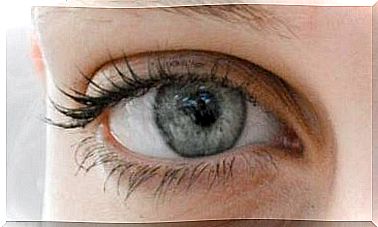Behind The Binge: Emotional Hunger
When we eat impulsively, what we seek to fill is not our stomach, but the longing for affection that we lacked in childhood. How to learn to love and nurture our body?

Since at birth we are totally dependent on maternal care for our survival, we will expect to be completely wrapped, touched, caressed and protected by a warm body that protects us. When that does not happen, we feel that our environment is hostile : we are not loved to the extent of our expectations.
Depending on how those feelings of shelter, shelter, emotional distance or loneliness have been, we incorporate the experiences through the bodily experience.
Stated like this, it will be possible to understand the relationship with our own body from a global and realistic perspective, because the link with our body began as soon as we were born, whether we have memories of it or not.
The feeling of being loved or rejected as soon as we are born becomes palpable in our body, positively or negatively. Thus, comfortable first bodily experiences allow us to have a good relationship with the environment, but also with ourselves through our body, which is the immediate projection field of all our internal experiences.
How do you get along with your body?
What has happened to us during our early childhood is what most resembles comfort, although objectively it has not been pleasant. For this reason, if the yearning for bodily contact has made us suffer – precisely due to lack of contact with our mother’s body – that experience today translates into the concrete distance between us and our body.
At this point, jumping on the bandwagon of a fashion of extremely slim bodies until disappearing also suits us. Not only because we respond to other people’s desires –dynamics to which we are already very accustomed– but because “disappearing” so that it does not hurt is also a proven and comfortable option.
We believe that to be loved, we should be a different person than we are. The contempt – lived during our childhood – is updated by not having been welcomed or embraced with intensity for the mere fact of having been who we were: real girls with real and legitimate needs.
Therefore, who we are will never live up to the supposed expectations of others : we will give importance to imperfections of whatever order, wrinkles, extra or less kilos, skin, eyes, hair … Anyway, the list will be endless because we fantasize that – if we had coincided with an external ideal – we would have received the love so longed for.
The only purpose is to suffer as little as possible. For this we have decided to pay the price of not being the owners of our body, but we have given it to whoever wants to look at it.
In the case of mothers, let us observe if we are capable of responding to the demands of young children or if we flee from commitments related to bodily availability. These small reactions are linked to the way we live our own body, either with fluidity in contact or with distance and pain.
Food as a substitute for emotional food
It is also frequent that food has become an affective filling substance, in the absence of the maternal emotional closeness that we would have needed.
- An automatic way to fill that void is through the urge to overeat that appears when we feel minimally despised, humiliated, or unseen. Sometimes a small trigger is enough for the feeling of emptiness or invisibility to set off the alarm. In general it happens when nobody sees us. This act anesthetizes us, that is, we have the sensation that there is an external self that acts. Then there is an inner self that looks helplessly. That is why food takes over the scene.
- The subsequent feeling of defeat is enormous. It is similar to the defeat in the bond with our mother, because we have been left at the mercy of her distance. At that time, the piece of food has overwhelming power. As much as the one we have given our mother since we were children, when obviously we were not old enough or psychically mature enough to reject the only nurturing entity we knew.
- Then we feel like the most obnoxious people in the world. No wonder no one (mom) loves us. We know that we have been possessed by an external force and we have not had the strength to say no. Once again they have done with us what they wanted and in that whirlwind of other people’s desires we have ceased to exist.
- Then the most frequent reaction is isolation. And if we are left alone, emptiness and loneliness will increase our need for filling and what we will have on hand will be more food. The circuit is established.
Regain self love
The best way to decide if we want to eat a food or not is to be with someone who is affectionate and close. Binge eating is confirmation of the loneliness that overwhelms us.
On the other hand, when we manage to flow in a loving bond, we stop being desperate. Let us know that the battle is not against food, but against the longing to have been loved. Now we are adults and our real mother no longer matters. What matters is the awareness we have of our past experiences and the possibility of entering into current pleasant relationships.
Ultimately, we are addressing the real and desperate need for affection. Everything else is a misunderstanding.
It is clear that those of us who are most deprived of our own body will be more vulnerable to social impositions. The rush to please and to be valuable to the extent that the other accepts us leaves us without a body, without a soul, without direction. Only we ourselves can decide to be this person that we are and this wonderful and perfect body that we have.









